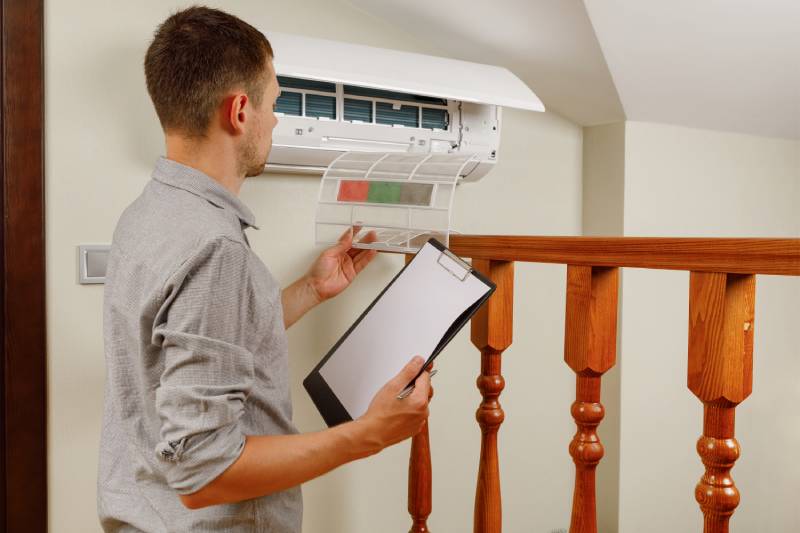
Effective Strategies for Improving Indoor Air Quality in Your Home
Maintaining good indoor air quality (IAQ) is essential for a healthy living environment. Poor air quality can lead to various health issues, including allergies, respiratory problems, and fatigue. Fortunately, there are several effective strategies you can implement to improve the air you breathe indoors.
1. Identify Common Indoor Pollutants
Understanding the common sources of indoor air pollution is the first step toward improving IAQ. Some typical pollutants include:
- Dust and Pet Dander: These are common allergens that can accumulate in carpets, furniture, and air ducts.
- Volatile Organic Compounds (VOCs): Emitted by paints, cleaning products, and certain building materials, VOCs can contribute to poor air quality.
- Mold and Mildew: These thrive in damp areas and can release spores into the air, leading to respiratory issues.
- Carbon Monoxide: A dangerous gas produced by faulty appliances, fireplaces, and car exhaust.
2. Increase Ventilation
Proper ventilation is crucial for diluting indoor pollutants and bringing in fresh air. Consider the following:
- Use Exhaust Fans: Install exhaust fans in kitchens and bathrooms to remove moisture and odors.
- Open Windows: When possible, open windows to allow fresh air to circulate throughout your home.
- Install a Ventilation System: A whole-house ventilation system can ensure a constant flow of fresh air, reducing the concentration of indoor pollutants.
3. Control Humidity Levels
Maintaining the right humidity levels in your home can prevent the growth of mold and dust mites. Aim to keep indoor humidity between 30% and 50%. You can use dehumidifiers in damp areas like basements and bathrooms, and ensure that your home is well-insulated to prevent excess moisture.
4. Use Air Purifiers
Air purifiers are an effective way to remove contaminants from the air. When choosing an air purifier, look for one that has a HEPA filter, which can capture small particles like dust, pollen, and pet dander. Place air purifiers in high-traffic areas or rooms where you spend the most time, such as the living room and bedrooms.
5. Regularly Maintain HVAC Systems
Your HVAC system plays a crucial role in maintaining indoor air quality. Regular maintenance is essential for ensuring that it operates efficiently:
- Change Air Filters: Replace air filters every 1-3 months to prevent dust and debris from circulating in your home.
- Schedule Professional Inspections: Have your HVAC system inspected by a professional at least once a year to ensure it’s functioning properly and not contributing to indoor air quality issues.
6. Choose Low-VOC Products
When painting, renovating, or buying new furniture, opt for products labeled as low-VOC or no-VOC. These products release fewer harmful chemicals into the air, reducing the risk of indoor pollution.
7. Keep Your Home Clean
Regular cleaning can significantly improve indoor air quality. Dust surfaces, vacuum carpets and rugs with a HEPA-filter vacuum, and wash bedding regularly. Don’t forget to clean or replace curtains and blinds, as these can also harbor dust and allergens.
8. Test for Radon and Carbon Monoxide
Radon is a naturally occurring radioactive gas that can seep into homes from the ground. It’s odorless and colorless, making it difficult to detect without testing. Similarly, carbon monoxide is a deadly gas that can leak from appliances and car exhausts. Regular testing for radon and installing carbon monoxide detectors can help protect your family from these invisible threats.
Indoor Air Quality in Albuquerque and Santa Fe
Improving indoor air quality is essential for maintaining a healthy home environment. By identifying common pollutants, increasing ventilation, controlling humidity, and using air purifiers, you can significantly reduce the risk of indoor air pollution. Regular maintenance of your HVAC system and choosing low-VOC products also play crucial roles in ensuring the air you breathe is clean and safe.
At Wagner, we’re committed to helping you create a healthier living space. If you need assistance with HVAC maintenance or air quality solutions, we’re here to provide expert guidance and services.




.webp)


